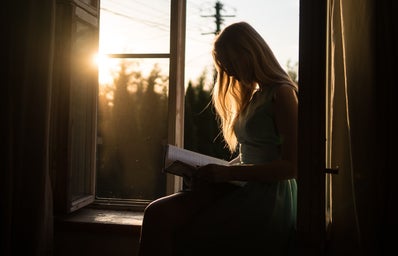Summer break is officially upon us! While I’m all for rest and relaxation during break, this new free time is an amazing opportunity to read some educational non-fiction books. Personally, I’ve been counting down the days until I can abandon reading for school and focus on topics I’m actually interested in. I’m a firm believer that you can’t have a hot girl summer without educating yourself. Here are a few non-fiction books I’ll be reading this summer that you should check out too!
- How Europe Underdeveloped Africa by Walter Rodney
-
Goodreads rating: 4.34/5
Goodreads summary: “The decisiveness of the short period of colonialism and its negative consequences for Africa spring mainly from the fact that Africa lost power. Power is the ultimate determinant in human society, being basic to the relations within any group and between groups. It implies the ability to defend one’s interests and if necessary to impose one’s will by any means available. In relations between peoples, the question of power determines maneuverability in bargaining, the extent to which a people survive as a physical and cultural entity. When one society finds itself forced to relinquish power entirely to another society, that in itself is a form of underdevelopment.”
- The Beauty Myth by Naomi Wolf
-
Goodreads rating: 3.9/5
Goodreads summary: “The bestselling classic that redefined our view of the relationship between beauty and female identity. In today’s world, women have more power, legal recognition, and professional success than ever before. Alongside the evident progress of the women’s movement, however, writer and journalist Naomi Wolf is troubled by a different kind of social control, which, she argues, may prove just as restrictive as the traditional image of homemaker and wife. It’s the beauty myth, an obsession with physical perfection that traps the modern woman in an endless spiral of hope, self-consciousness, and self-hatred as she tries to fulfill society’s impossible definition of ‘the flawless beauty.’”
- Hood Feminism by Mikki Kendall
-
Goodreads rating: 4.44/5
Goodreads summary: “Today’s feminist movement has a glaring blind spot, and paradoxically, it is women. Mainstream feminists rarely talk about meeting basic needs as a feminist issue, argues Mikki Kendall, but food insecurity, access to quality education, safe neighborhoods, a living wage, and medical care are all feminist issues. All too often, however, the focus is not on basic survival for the many, but on increasing privilege for the few. That feminists refuse to prioritize these issues has only exacerbated the age-old problem of both internecine discord and women who rebuff at carrying the title. Moreover, prominent white feminists broadly suffer from their own myopia with regard to how things like race, class, sexual orientation, and ability intersect with gender. How can we stand in solidarity as a movement, Kendall asks, when there is the distinct likelihood that some women are oppressing others?”
- Braiding Sweetgrass by Robin Wall Kimmerer
-
Goodreads rating: 4.57/5
Goodreads summary: “As a botanist, Robin Wall Kimmerer has been trained to ask questions of nature with the tools of science. As a member of the Citizen Potawatomi Nation, she embraces the notion that plants and animals are our oldest teachers. In Braiding Sweetgrass, Kimmerer brings these lenses of knowledge together to show that the awakening of a wider ecological consciousness requires the acknowledgment and celebration of our reciprocal relationship with the rest of the living world. For only when we can hear the languages of other beings are we capable of understanding the generosity of the earth, and learning to give our own gifts in return”
- The Will to Change: Men, Masculinity, and Love by bell hooks
-
Goodreads rating: 4.37/5
Goodreads summary: “In The Will to Change, bell hooks gets to the heart of the matter and shows men how to express the emotions that are a fundamental part of who they are—whatever their age, marital status, ethnicity, or sexual orientation. But toxic masculinity punishes those fundamental emotions, and it’s so deeply ingrained in our society that it’s hard for men to not comply—but hooks wants to help change that.”



